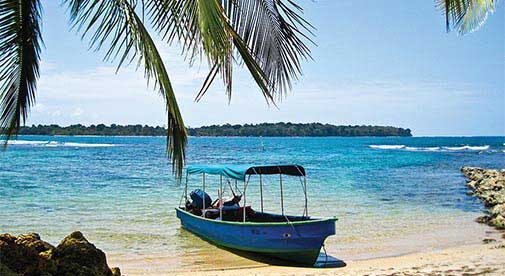If the statistics are correct, more than two of every five U.S. workers is now toiling from home—or so says a Stanford University economist. It’s one of the more dramatic impacts of the coronavirus pandemic.
A knock-on effect of that is a rise in the number of countries now wooing America’s suddenly abundant work-from-home crowd. You’ve probably seen stories about Barbados aiming to attract workers with a special visa that allows one to live and work on the Caribbean island for a year, double the typical six-month limit.
Well, not to be outdone, Estonia, in far northeastern Europe, has launched a one-year digital nomad visa. Georgia (the country, not the U.S. state) is now issuing its own one-year visa for remote workers. Same with Bermuda. Meanwhile, Antigua and Barbuda just recently joined the frenzy and leveled-up to two years the amount of time a remote worker can have boots on the ground locally.
Yet, as beguiling as some of those offers might seem, the fact is that they come with some meaningful hurdles that, I think, seriously undermine their value for anyone who’s looking to build a life living and working overseas. There’s a better option, but we’ll get to that in a minute.
First, the downside of this new crop of remote-worker visas: money and time.
In Barbados, you’ll have to pay $2,000 for the visa.
Take, for instance, the Barbados Welcome Stamp. A year on this tropical island would certainly be idyllic—sun, sand, and sea when you wake up every morning. But there’s a cost here that might not sit well with all wannabe digital nomads. You’ll have to pay $2,000 for the visa, or $3,000 if you want to bring family. More noteworthy is this nugget: The program requires that you certify that you will earn an annual income of at least $50,000. For some people, that might be a non-starter.
Antigua and Barbuda impose the same income requirement, but for two years, and demand evidence of employment or self-employment. The fees: $1,500 for a single applicant, $2,000 for a couple, and $3,000 for a family of three or more.
Estonia is similar in that the newly launched digital nomad visa requires that you prove a minimum monthly income of €3,504 (about $4,130 at the moment) in each of the last six months prior to filing your application. You’ll need to maintain that going forward. For some, that might not be an issue. For others, it might push the beautiful and moody Baltic nation off the wish-list.
And if financial requirements aren’t a deal-breaker, then maybe this is: These visas are one-and-done. They expire after a year (or two, as the case might be), and they’re generally not renewable. That leaves a lot to be desired for those who really want to pursue a nomadic, earn-from-anywhere lifestyle.
Yes, this expiration issue is fine if all you really want is one year away—call it a sabbatical—before returning to your normal life. But here’s the question that arises in my mind: Let’s say you go to Estonia (or Croatia, which is looking to launch a digital nomad visa imminently) and you fall in love with the place and the lifestyle…and then your visa expires, and you’re politely asked to scram?
Now, you have the time and expense involved with starting a new process of obtaining a temporary residence visa, and several of these places aren’t open to that. I won’t say that your year has, thus, been wasted (any time exploring the world is time well used). But in terms of building that work-abroad life, it sort of has been wasted.
The better approach: If you truly want to test-drive a live-and-work overseas lifestyle, just apply for a freelance/ entrepreneur visa in one of the numerous places where those are available: Portugal, France, Spain, the Netherlands, Germany, the Czech Republic (where I live), Uruguay, Panama, Colombia, the list is long.
The application process is similar if not identical to the process you’ll face chasing a visa for all these destinations eager to woo digital nomads temporarily. You’ll receive the same one-year, temporary residence visa, but you’ll have the option to renew it, often for two years. Then, after those two years draw to a close, you can renew the visa again, ultimately reaching the point where you can apply for citizenship, if that’s a goal.
Moreover, the income requirements are often markedly lower. In Portugal, for instance, the income requirement is €7,200 per year, or about $700 per month. If you bring a spouse, you’ll need to increase that by another $350 per month.
Better yet, it’s not going to cost you any more money for the application—and, frankly, it’s often cheaper. My all-in costs for obtaining the paperwork that makes me legal in Prague (and I used a firm to expediate the process) were about $600. I had the papers that allow me to work in the Czech Republic in a couple weeks and my residence visa in about two months.
Some places will take longer, but the point remains that once you have the necessary documents, you don’t have to keep an eye on the calendar, knowing that the life you’re starting to love is months away from expiration.
Related Articles
7 Steps to Becoming a Digital Nomad
100 Best Places For Boomers to Earn Online
The Complete Work From Home Guide
Upcoming Conferences
The Only 2024 Fast Track Panama Conference
If your dream retirement involves stunning beaches… lush green mountains… a warm climate with no hurricanes… first-rate healthcare… incredible value for money (a couple can live well on $2,200 a month)… and the World’s #1 Retiree Discount Program…
Join our Panama experts and expats in February and discover why Panama could be your perfect paradise.


.png)